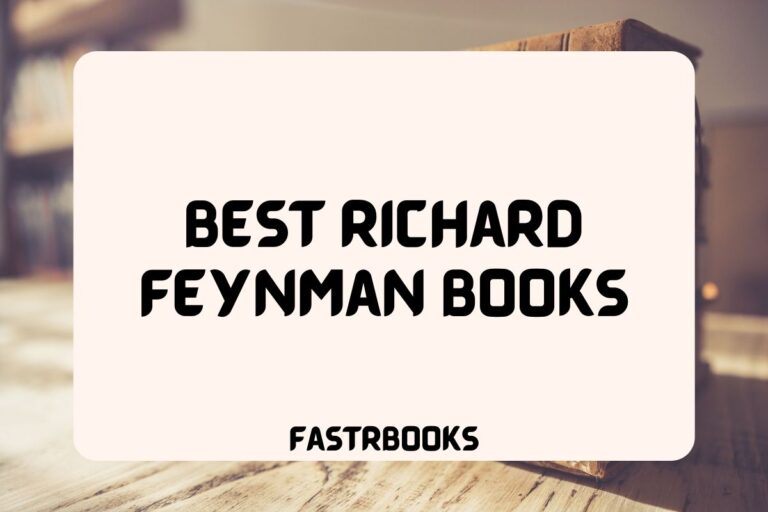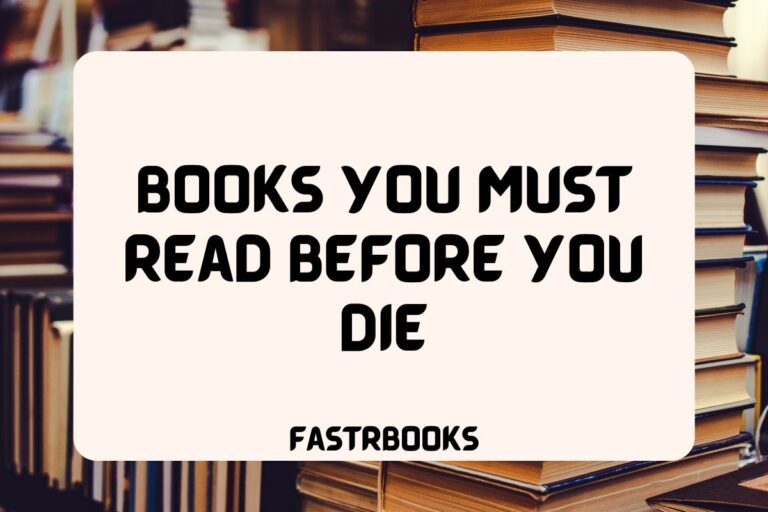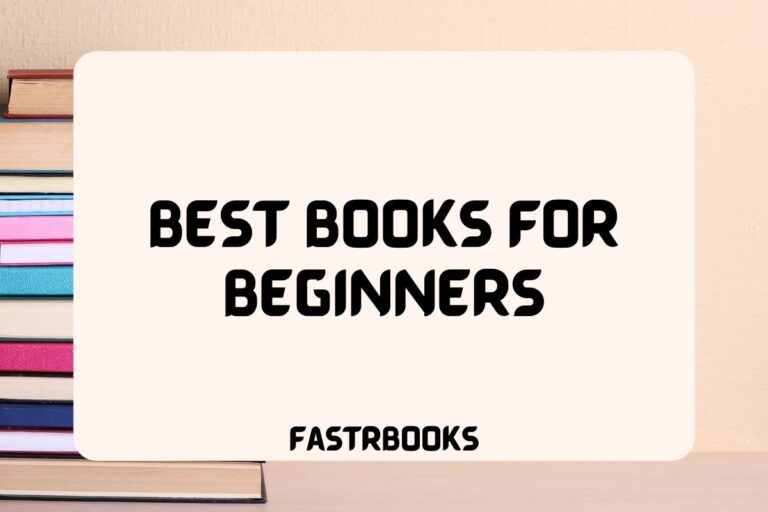10 Best Fasting Books

Fasting can be both empowering and transformative, but finding reliable guidance amidst the abundance of information can be overwhelming.
Whether you’re curious about intermittent fasting, extended fasts, or exploring the spiritual dimensions of fasting, the right book can serve as a trusted companion.
In this curated list, we unveil the best fasting books that offer invaluable insights, practical tips, and scientific explanations to help you navigate your fasting journey with confidence and clarity.
Let’s check them out.
Best Fasting Books
1. “The Complete Guide to Fasting” by Jason Fung, MD with Jimmy Moore
This book offers a comprehensive look into the practice of fasting, combining medical knowledge with practical advice.
Dr. Jason Fung, a nephrologist, delves into the history, benefits, and various methods of fasting, addressing common myths and concerns along the way. The inclusion of Jimmy Moore, a well-known health and wellness blogger, adds a personal touch with anecdotes and tips for implementing fasting into one’s lifestyle.
What makes it amazing?
“The Complete Guide to Fasting” stands out for its evidence-based approach, making complex medical concepts accessible to the general reader. Dr. Fung’s expertise and the real-world application provided by Moore make it a go-to resource for anyone interested in fasting for health or weight loss.
Its balanced view on fasting, backed by scientific research and practical examples, offers readers the tools they need to safely and effectively incorporate fasting into their lives.
2. “The Warrior Diet: Switch on Your Biological Powerhouse for High Energy, Explosive Strength, and a Leaner, Harder Body” by Ori Hofmekler
Ori Hofmekler’s “The Warrior Diet” is based on the idea of living according to the ancient warrior lifestyle, incorporating a unique form of intermittent fasting.
It suggests a daily cycle of “under-eating” during the day and “overeating” at night, mimicking the eating patterns of ancient warriors. The book combines dietary advice with exercise and lifestyle recommendations to achieve optimal health and fitness.
What makes it amazing?
“The Warrior Diet” is revolutionary in its approach to diet and exercise, challenging modern dietary norms and offering an alternative that is rooted in historical precedent. Hofmekler’s emphasis on instinctual eating, physical fitness, and mental resilience offers a comprehensive lifestyle plan that goes beyond mere dieting.
The book’s innovative approach to nutrition and fitness, backed by research and historical evidence, makes it a compelling read for those seeking a radical change in their health and well-being.
3. “The Obesity Code: Unlocking the Secrets of Weight Loss” by Jason Fung, MD
While not exclusively about fasting, “The Obesity Code” is a seminal work that addresses the underlying causes of obesity and offers fasting as a key tool for managing weight.
Dr. Jason Fung explores how insulin resistance and hormonal imbalances contribute to obesity and suggests that fasting, in conjunction with a healthy diet, can reset the body’s hormonal balance to aid in weight loss.
What makes it amazing?
“The Obesity Code” is revolutionary in its approach to understanding and treating obesity, challenging conventional wisdom on calorie counting and dieting.
Dr. Fung’s clear explanation of the science behind weight gain and his advocacy for fasting as a natural and effective solution make this book a critical read for anyone struggling with weight issues. Its success lies in not just offering a solution but also changing the way we think about food, health, and weight loss.
4. “Fast. Feast. Repeat.” by Gin Stephens
Gin Stephens’ book is a detailed guide to intermittent fasting, offering a flexible approach that readers can tailor to fit their lifestyle.
Stephens combines the latest research with personal anecdotes to present a method of intermittent fasting that is sustainable over the long term. The book covers everything from the science of fasting and its benefits to how to handle social situations and setbacks.
What makes it amazing?
“Fast. Feast. Repeat.” is praised for its relatable tone and practical advice, making it particularly accessible to beginners. Stephens’ focus on flexibility and personalization in fasting schedules empowers readers to find a rhythm that works best for their bodies and schedules, rather than prescribing a one-size-fits-all approach.
Her emphasis on the lifestyle aspect of fasting, including its social and psychological dimensions, makes this book a comprehensive guide to making intermittent fasting a permanent part of one’s life.
5. “Eat Stop Eat” by Brad Pilon
Brad Pilon’s “Eat Stop Eat” introduces readers to the concept of periodic fasting for weight loss and health improvement. The book is based on Pilon’s research in nutrition and provides a straightforward approach to incorporating 24-hour fasts into a weekly routine.
It debunks common fasting myths and concerns, providing evidence to support its benefits and effectiveness.
What makes it amazing?
“Eat Stop Eat” is remarkable for its simplicity and scientific backing, making the concept of fasting accessible and appealing to a wide audience.
Pilon’s focus on flexibility and the debunking of dieting myths offer a refreshing take on weight loss and health maintenance. The book encourages readers to adopt fasting in a way that fits their lifestyle, promoting long-term health benefits without the need for complicated diet plans or restrictions.
6. “Delay, Don’t Deny: Living an Intermittent Fasting Lifestyle” by Gin Stephens
Gin Stephens writes a compelling guide on how to live a fulfilling life while practicing intermittent fasting. She shares her journey, explaining how intermittent fasting transformed her health and led to significant weight loss.
The book is filled with practical advice, including how to start fasting, what to expect during the process, and how to combine fasting with various eating plans.
What makes it amazing?
“Delay, Don’t Deny” is remarkable for its down-to-earth approach and community-driven support system. Stephens’ personal success story and the inclusion of testimonials from others who have benefited from intermittent fasting make it incredibly motivating.
The book stands out for its emphasis on flexibility and finding joy in eating, which challenges the restrictive nature of traditional diets. It’s a testament to how intermittent fasting can be a sustainable, life-changing practice.
7. “The FastDiet: Lose Weight, Stay Healthy, and Live Longer with the Simple Secret of Intermittent Fasting” by Michael Mosley and Mimi Spencer
This book introduces readers to the 5:2 diet, a form of intermittent fasting that involves eating normally for five days a week and restricting calories for the other two.
Michael Mosley, a British journalist and doctor, teamed up with Mimi Spencer, a fashion and food writer, to provide a comprehensive guide on how to effectively implement this diet for long-term health benefits.
What makes it amazing?
“The FastDiet” is groundbreaking in its simplicity and its appeal to a wide audience. Mosley and Spencer combine scientific research with practical advice, making the 5:2 diet an accessible option for those looking to lose weight or improve their health without drastic lifestyle changes.
The book’s success lies in its ability to present fasting as not just a diet but a way of life that can lead to improved longevity and well-being.
8. “Complete Guide To Fasting: Heal Your Body Through Intermittent, Alternate-Day, and Extended Fasting” by Dr. Jason Fung with Jimmy Moore
In “Complete Guide To Fasting,” Dr. Jason Fung explores the biological mechanisms behind fasting and its effects on the body.
With co-author Jimmy Moore, they delve into how fasting can be used to treat various health conditions, from obesity to type 2 diabetes, and even cancer. The book provides a deep dive into the science of why fasting works and how to do it safely.
What makes it amazing?
This book excels in its ability to demystify the complex science behind fasting, making it understandable for the layperson while retaining its scientific rigor.
Fung’s expertise and the inclusion of a wide range of fasting protocols cater to various preferences and health needs, making it a versatile guide.
Its detailed explanation of the health benefits associated with different fasting methods makes it a valuable resource for anyone serious about exploring fasting for health recovery or maintenance.
9. “Life in the Fasting Lane: How to Make Intermittent Fasting a Lifestyle—and Reap the Benefits of Weight Loss and Better Health” by Jason Fung, Eve Mayer, and Megan Ramos
This book combines the expertise of Dr. Jason Fung with the personal experiences of Eve Mayer and Megan Ramos, offering a unique perspective on intermittent fasting.
It addresses the challenges of adopting fasting as a lifestyle, including dealing with hunger, making food choices, and fitting fasting into a busy schedule. The authors share strategies for success and explore the mental and emotional aspects of fasting.
What makes it amazing?
“Life in the Fasting Lane” is exceptional because it looks beyond the physical benefits of fasting, emphasizing its mental and emotional impacts. The book’s collaborative approach, combining scientific expertise with personal narratives, makes it relatable and inspirational.
It’s a comprehensive guide that not only teaches readers how to fast but also how to enjoy and sustain it as a lifestyle, making it a standout resource in the realm of health and wellness.
10. “Fasting: An Exceptional Human Experience” by Randi Fredricks, Ph.D.
Randi Fredricks’ book takes a broader view of fasting, examining its role in religious, cultural, and historical contexts as well as its health benefits. Fredricks, a therapist and researcher, provides a thorough overview of fasting practices around the world and explores the psychological and spiritual dimensions of fasting.
The book is a blend of research, case studies, and practical advice for those interested in the deeper aspects of fasting.
What makes it amazing?
“Fasting: An Exceptional Human Experience” is amazing for its comprehensive and scholarly approach to the subject of fasting. It stands out by not only covering the health-related aspects but also delving into the spiritual and psychological benefits of fasting.
Fredricks’ ability to synthesize research across disciplines provides a holistic view of fasting as a multifaceted human practice, offering readers insights into the transformative power of fasting beyond physical health.






